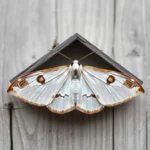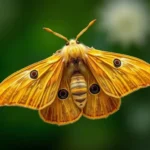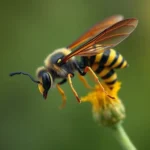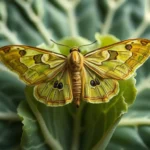The Buzz on Hornet Symbolism: Exploring the Spiritual Significance of These Fierce Insects
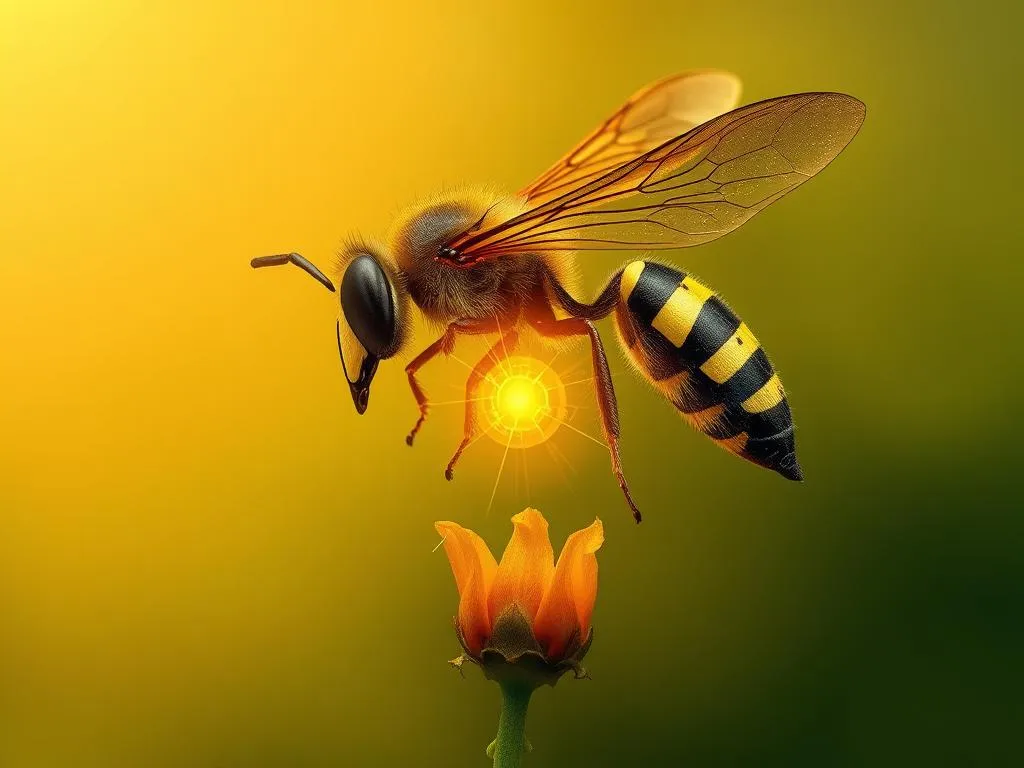
Disclaimer: Some images on this website are AI-generated artworks and may not accurately represent real animals.
Hornets, often misunderstood and feared, carry a wealth of symbolism and meaning that can resonate deeply with those who encounter them. From their fierce protection of their nests to their role in maintaining ecological balance, hornets have much to teach us about life, community, and transformation. In this blog post, we will explore the various dimensions of hornet symbolism, their significance in dreams, and how they inspire personal growth.
Understanding the Hornet
Physical Characteristics
Hornets belong to the family Vespidae and are known for their distinct physical features. Below is a table summarizing some of the essential characteristics of hornets:
| Characteristic | Description |
|---|---|
| Size | Generally larger than regular wasps, ranging from 1 to 2 inches in length |
| Color | Varies by species; typically yellow and black, with some brown or white markings |
| Body Structure | Robust and elongated body with a narrow waist |
| Wings | Transparent, membranous wings that fold longitudinally when at rest |
| Stinger | Long and capable of delivering a painful sting; can sting multiple times |
Hornets are aggressive defenders of their nests, and their stings can be quite painful. However, they are also fascinating creatures with complex behaviors that contribute significantly to their environment.
Habitat and Behavior
Hornets can be found in various habitats, including forests, gardens, and urban areas. They build large, paper-like nests high in trees or sheltered areas. Hornet colonies are usually established in the spring, with the queen laying eggs that develop into worker hornets. The social structure of these colonies is intricate, with a clear hierarchy that includes a queen, workers, and drones.
Hornets are known for their aggressive behavior when their nests are threatened. However, they also play a crucial role in the ecosystem by preying on other pests and helping with pollination. Their dietary habits include consuming nectar and insects, which helps control pest populations.
Role in Ecosystem
Hornets are essential for maintaining ecological balance. They play a key role in:
- Pollination: As they visit flowers for nectar, hornets inadvertently aid in the pollination process, which is vital for plant reproduction.
- Pest Control: Hornets help control pest populations by feeding on various insects, contributing to a healthier ecosystem.
- Nutrient Cycling: Their decomposition of organic matter assists in nutrient recycling within the environment.
Understanding the ecological role of hornets adds depth to their symbolism and meaning. They embody the balance of nature, showcasing the importance of each creature in the web of life.
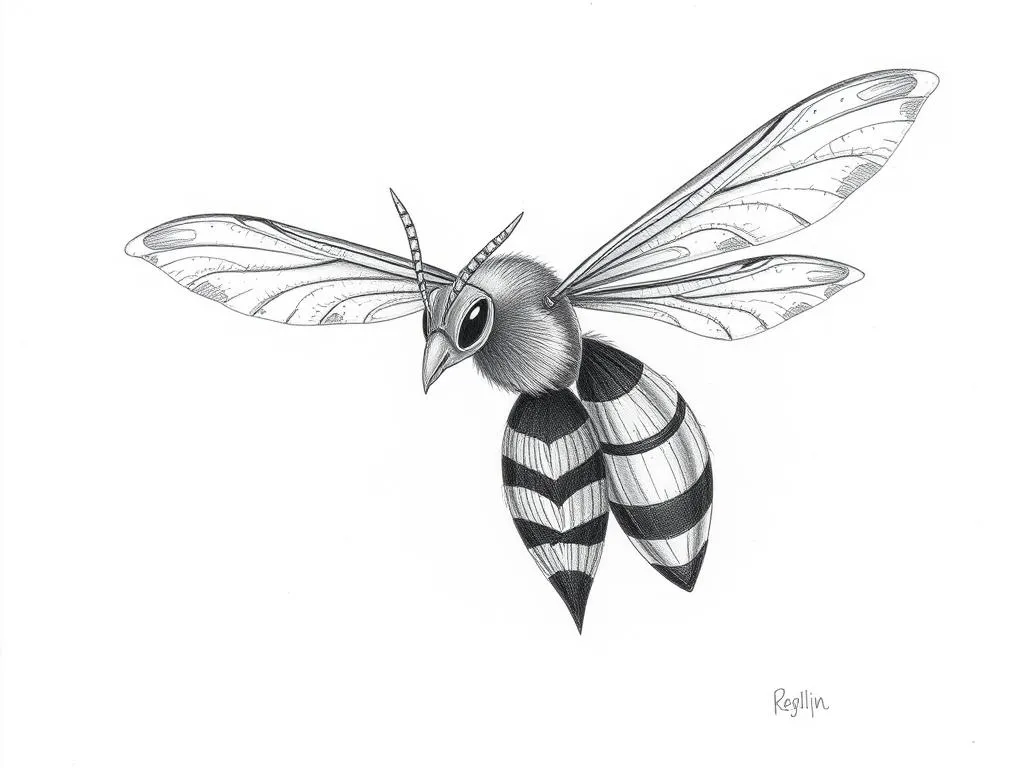
Symbolism & Spiritual Meaning
Hornets hold various meanings across cultures, and their symbolism can reflect both positive and challenging aspects of life.
Fierce Protection
One of the most prominent symbolic meanings associated with hornets is fierce protection. They are known to defend their nests with tenacity, making them powerful symbols of guardianship. This protective nature can represent:
- Defending Boundaries: Just as hornets fiercely guard their territory, individuals may feel inspired to protect their personal space and boundaries.
- Courage: Hornets exemplify bravery in the face of threats, encouraging us to confront our fears and stand firm in difficult situations.
Community and Teamwork
Hornets are social insects that thrive in colonies, embodying the values of community and teamwork. This aspect of their symbolism emphasizes:
- Unity: The collaborative efforts of hornets to build and defend their nest serve as a reminder of the strength found in unity and cooperation.
- Shared Responsibility: Each hornet plays a specific role within the colony, highlighting the importance of teamwork in achieving common goals.
Transformation and Change
The life cycle of hornets—from egg to larva to adult—symbolizes transformation and change. This aspect can inspire us to embrace new beginnings and personal growth, signifying:
- Adaptability: Hornets demonstrate the ability to adapt to changing environments, encouraging us to be flexible and open to change in our own lives.
- Evolution: The metamorphosis from larva to adult represents the journey of self-discovery and the potential for growth and evolution.
Hornets in Dreams
Dreams featuring hornets can evoke strong emotions and carry significant meaning. Understanding the themes associated with hornets in dreams can provide valuable insights into our subconscious thoughts and feelings.
Common Themes
When hornets appear in our dreams, they often bring forth various themes, such as:
- Conflict: Dreaming of hornets may indicate unresolved conflicts or tension in waking life.
- Fear: Hornets can symbolize fear of confrontation or anxiety about defending oneself.
- Protection: They may represent a need for protection or a desire to assert boundaries.
Interpreting Hornet Encounters
Different scenarios involving hornets in dreams can yield diverse interpretations. Here are a few common situations:
| Scenario | Potential Interpretation |
|---|---|
| Being chased by hornets | Fear of confrontation or feeling overwhelmed by circumstances |
| Observing hornets peacefully | A sense of community or support in your life |
| Getting stung by a hornet | Feeling attacked or vulnerable in a situation |
Understanding these scenarios allows us to reflect on our emotional responses and what they may signify about our waking life.
Emotional Responses
The emotional impact of hornets in dreams can vary widely. Some common feelings associated with hornets include:
- Fear: Hornets can evoke a sense of danger or anxiety, prompting us to examine what we fear in our lives.
- Empowerment: Encountering hornets may also inspire feelings of empowerment, encouraging us to assert ourselves and protect what is important.
Recognizing these emotions can help us gain clarity about our personal challenges and aspirations.
Modern Interpretations
Hornets have a rich presence in folklore, mythology, and contemporary culture. Their symbolism continues to evolve, reflecting their significance in various contexts.
Cultural Significance
Across cultures, hornets have been depicted in various ways:
- Folklore: In some traditions, hornets are seen as messengers of change or warnings of impending danger.
- Mythology: Certain cultures view hornets as spiritual protectors, embodying the power of transformation.
These interpretations highlight the multifaceted nature of hornet symbolism and its relevance across different societies.
Symbol of Aggression or Defense
In modern contexts, hornets often symbolize assertiveness and defense. This representation can manifest in various ways:
- Personal Empowerment: In today’s world, hornets can inspire individuals to stand up for themselves and assert their rights.
- Defensive Strategies: People may relate to the hornet’s protective nature, using it as a metaphor for self-defense and resilience.
Art and Literature
Hornets have also found their way into art and literature, serving as compelling symbols. They often represent themes of conflict, protection, and community. Contemporary works may utilize hornets to explore the complexities of human emotions and relationships, highlighting the depth of their symbolism and meaning.
Key Takeaways
Understanding hornet symbolism can provide valuable insights into our lives and personal growth. Here are some core themes associated with hornets:
- Fierce Protection: Emphasizes the importance of boundaries and courage.
- Community and Teamwork: Highlights the strength found in unity and collaboration.
- Transformation and Change: Encourages adaptability and personal evolution.
Reflecting on your experiences with hornets can deepen your understanding of these themes. Consider how their symbolism resonates with your life and how it might inspire growth.
Conclusion
Hornets are more than just intimidating insects; they carry a profound symbolism and meaning that can resonate with our personal journeys. From their roles in ecosystems to their powerful representations of protection, community, and transformation, hornets invite us to reflect on our own lives and challenges.
As we explore the spiritual significance of hornets, we can learn to embrace the lessons they offer. Whether through dreams or encounters in nature, hornets remind us of the strength found in unity, the courage to defend our boundaries, and the beauty of transformation.
Engaging with these themes not only enriches our understanding of hornets but also inspires personal growth and resilience. What experiences have you had with hornets? How do they resonate with your journey?



